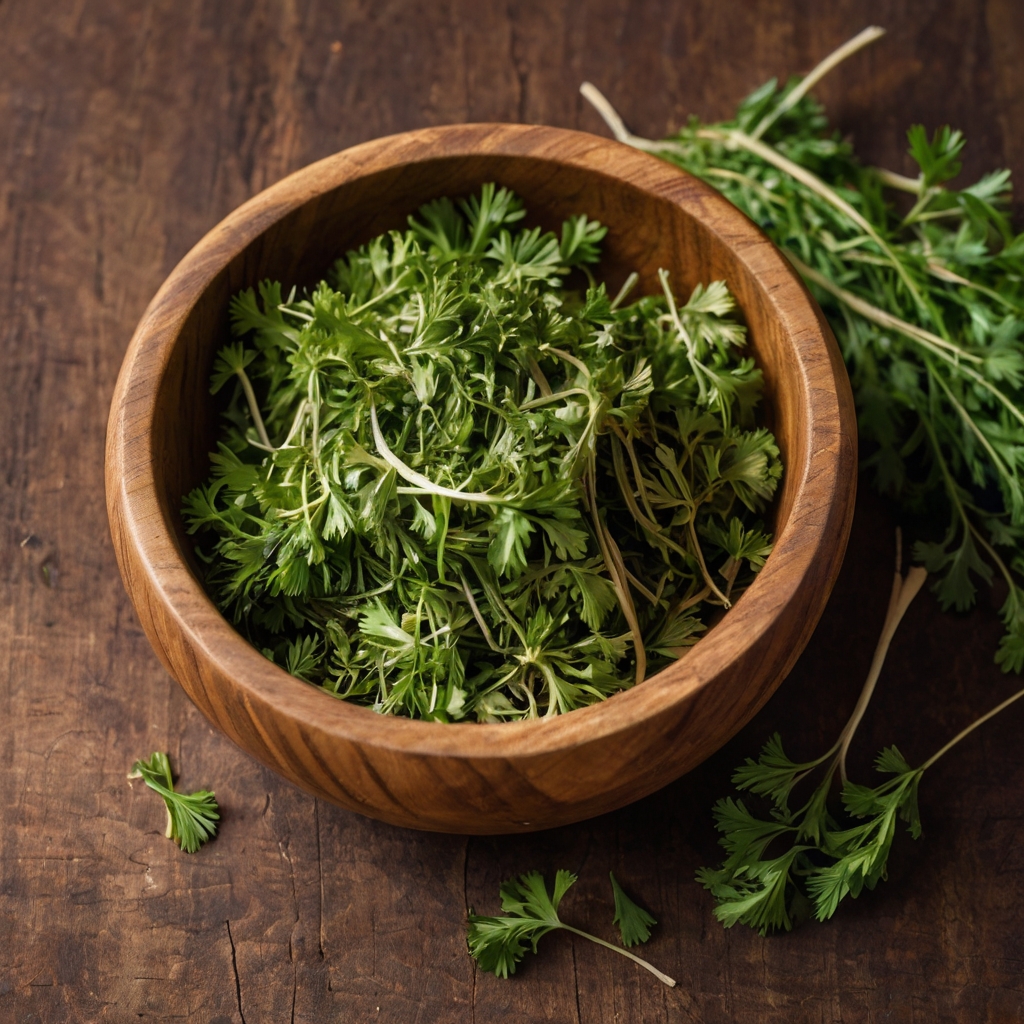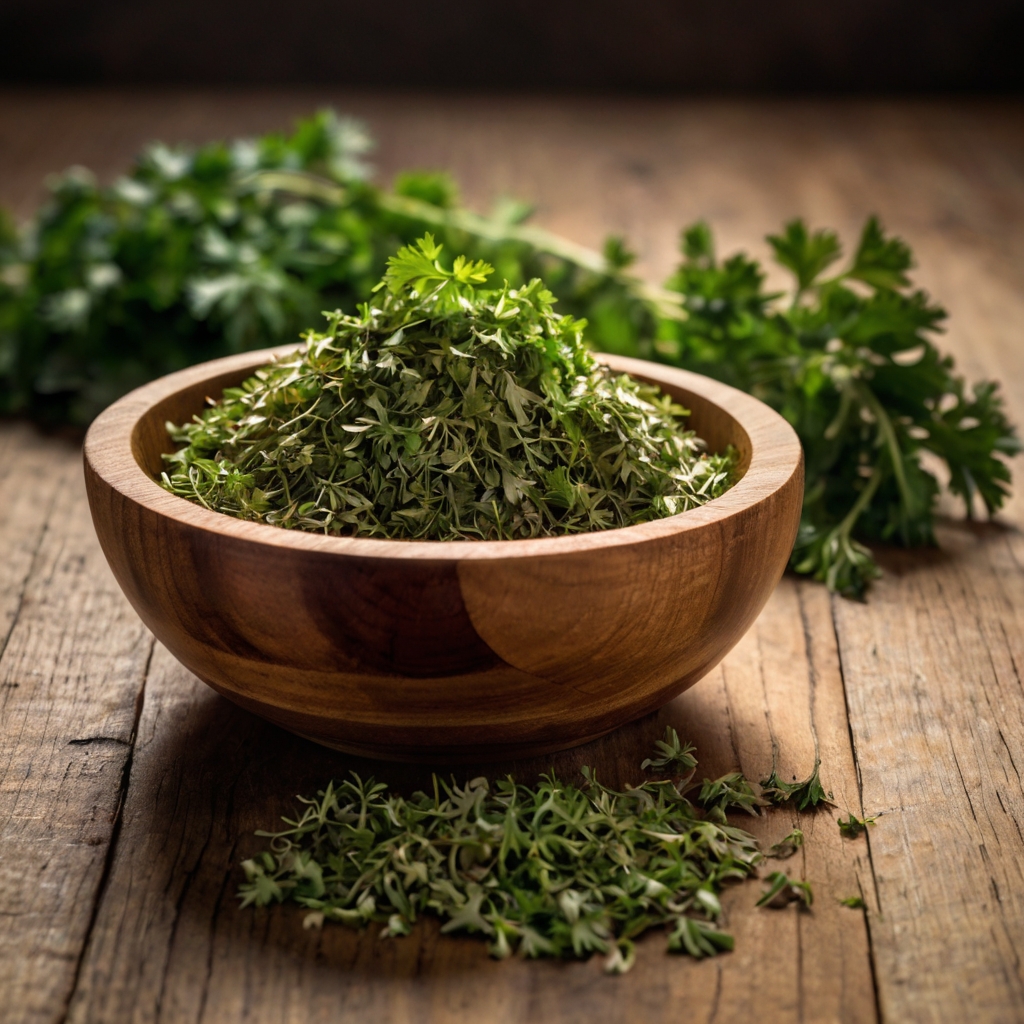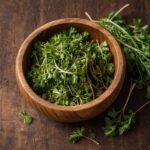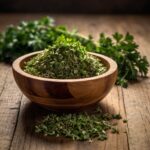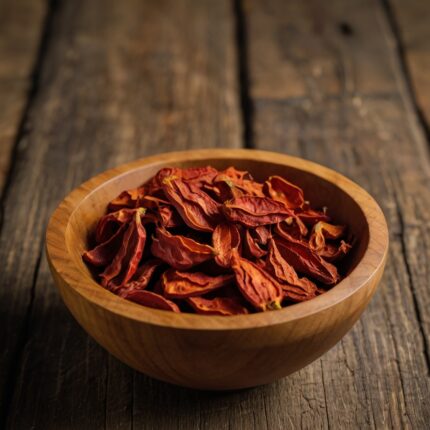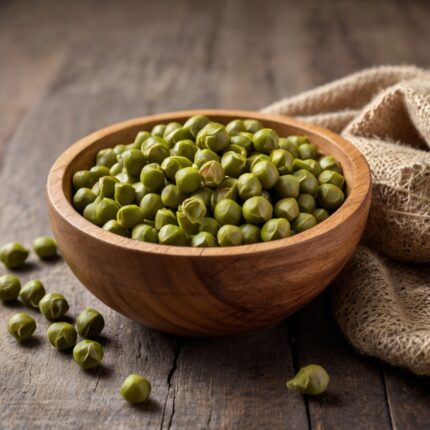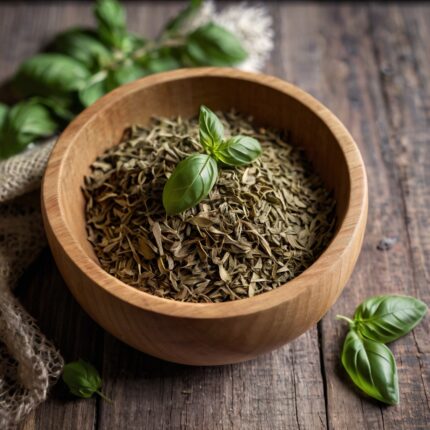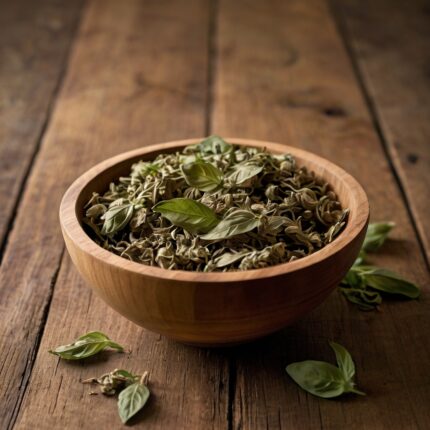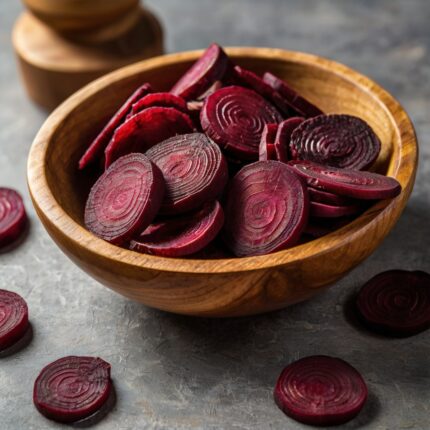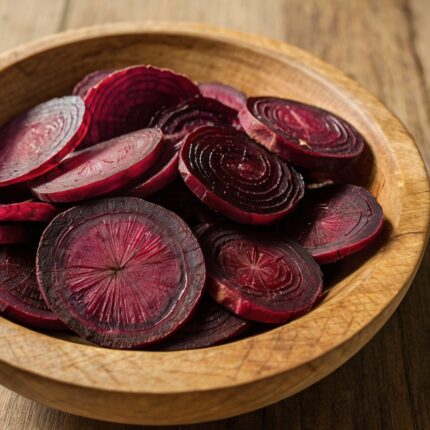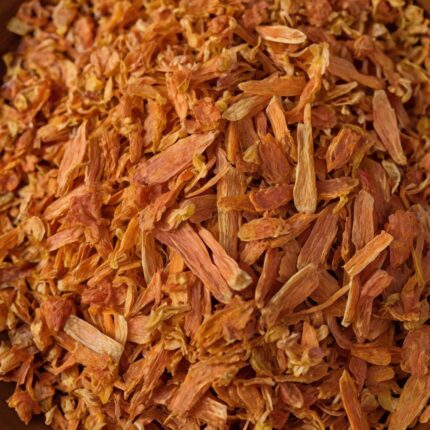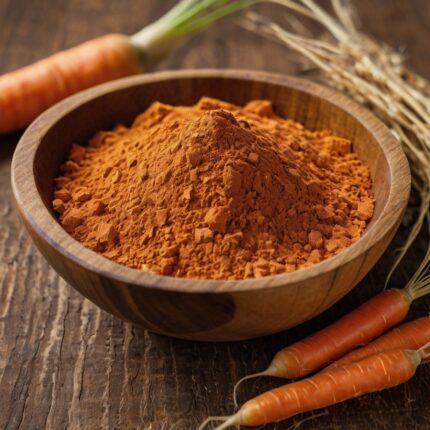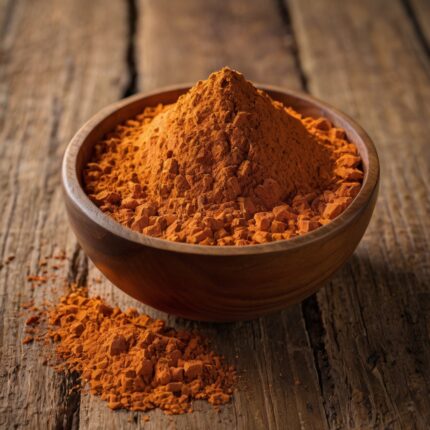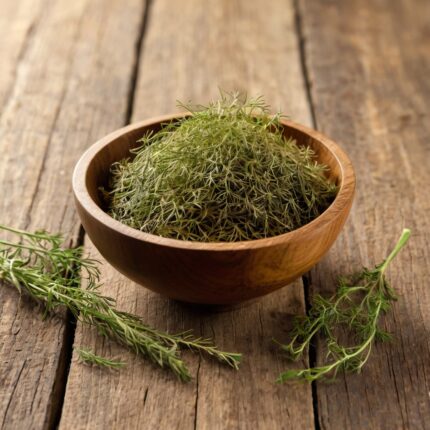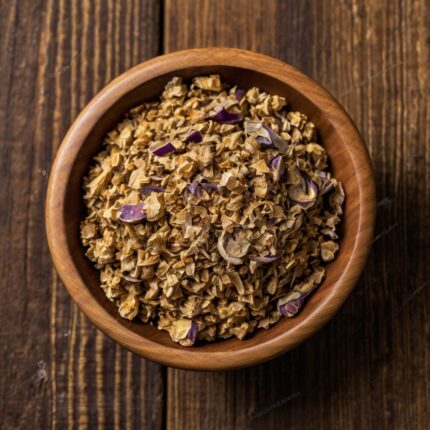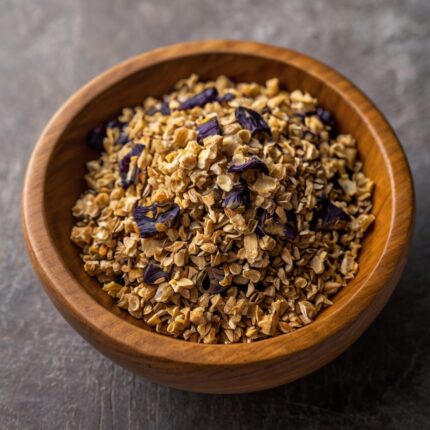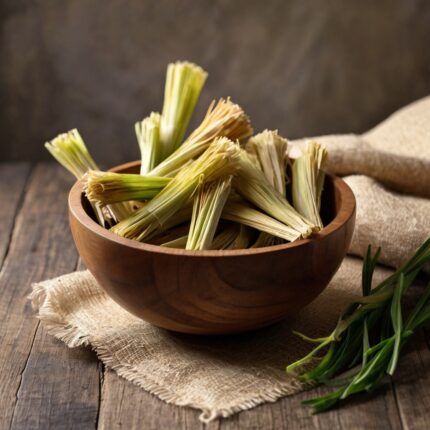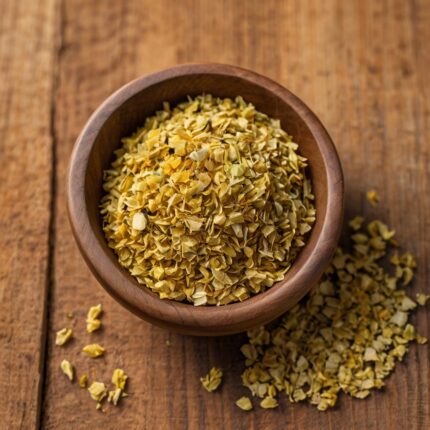Dried parsley is the dehydrated form of fresh parsley (Petroselinum crispum), a versatile and aromatic herb widely used in cuisines around the world. While fresh parsley is often used as a garnish or in salads, dried parsley retains much of its flavor and aroma, making it a convenient alternative for cooking when fresh parsley is not available.
Dried parsley offers many of the health benefits of fresh parsley, but in a more concentrated form, making it essential for food storage and seasoning. It is commonly used in Mediterranean, Middle Eastern, and European cuisines and is particularly popular in soups, sauces, salads, and as a garnish.
Key Nutrients and Health Benefits:
-
Rich in vitamins:
- Vitamin A: Dried parsley is an excellent source of vitamin A, which is essential for maintaining healthy vision, immune system function, and skin health.
- Vitamin C: This herb is also a good source of vitamin C, which helps boost the immune system, support collagen production, and protect against free radical damage.
- Vitamin K: Dried parsley is a rich source of vitamin K, which is vital for blood clotting and bone health.
-
Rich in minerals:
- Calcium: Dried parsley provides a significant amount of calcium, which helps maintain strong bones and teeth and is essential for nerve function and muscle contraction.
- Iron: Parsley is an excellent plant-based source of iron, which is important for the production of hemoglobin and the transport of oxygen in the blood.
- Magnesium: Parsley contains magnesium, which assists in over 300 biochemical reactions in the body, including muscle and nerve function, as well as maintaining a steady heart rhythm.
- Potassium: This herb is rich in potassium, which helps regulate blood pressure and supports muscle function.
-
Antioxidant Properties:
- Dried parsley is rich in antioxidants such as flavonoids, carotenoids, and phenolic compounds. These antioxidants help neutralize free radicals in the body, reducing oxidative stress and inflammation.
-
Digestive Health:
- Parsley is a natural diuretic that can help boost kidney function and reduce water retention. It is also known to soothe the digestive system, reduce bloating, and promote healthy digestion.
- This herb is often used in traditional medicine as a remedy for digestive issues, bloating, and gas.
-
Anti-inflammatory:
- Parsley contains compounds with anti-inflammatory effects that may help alleviate symptoms of conditions such as arthritis and other inflammatory diseases.
-
Rich in Fiber:
- The high fiber content in dried parsley supports digestive health by promoting regular bowel movements, preventing constipation, and supporting the gut microbiome.
Uses of Dried Parsley:
- Culinary Uses:
- Dried parsley has a slightly more intense flavor than fresh parsley, making it an excellent addition to many cooked dishes. It is usually added at the end of cooking to preserve its flavor, but it can also be used during the cooking process for deeper infusion.
- Soups and Stews: Dried parsley is essential in many soups and stews, such as chicken soup, vegetable soup, or lentil stew. It adds a fresh, herbaceous flavor and enhances the overall taste.
- Sauces and Gravies: Parsley is often added to tomato-based sauces, meat gravies, or white sauces. It pairs well with garlic, onion, and other herbs like thyme and basil.
- Salads and Garnishes: Dried parsley can be sprinkled on salads or mixed into salad dressings, such as vinaigrettes, to add a fresh flavor. It is particularly useful in Greek, Mediterranean, and Middle Eastern-inspired salads.
- Dried parsley has a slightly more intense flavor than fresh parsley, making it an excellent addition to many cooked dishes. It is usually added at the end of cooking to preserve its flavor, but it can also be used during the cooking process for deeper infusion.
| Nutrients | Amount per 100 grams of dried parsley: |
| Calories | 295kcal |
| protain | 22g |
| fat | 6g |
| Saturated Fat | 1g |
| Carbohydrates | 64g |
| Dietary Fiber | 39g |
| sugar | 0 g |
| vitaminA | 10,000–15,000 |
| vitamin C | 133 |
| vitaminK | 1,200 microg |
| vitaminE | 10 |
| folate | 200 |
| vitaminB6 | 0.6 |
| Calcium | 1,400 |
| iron | 15 |
| Magnesium | 200milligrams |
| Potassium | 1,400milligrams |
| zinc | 4 |
